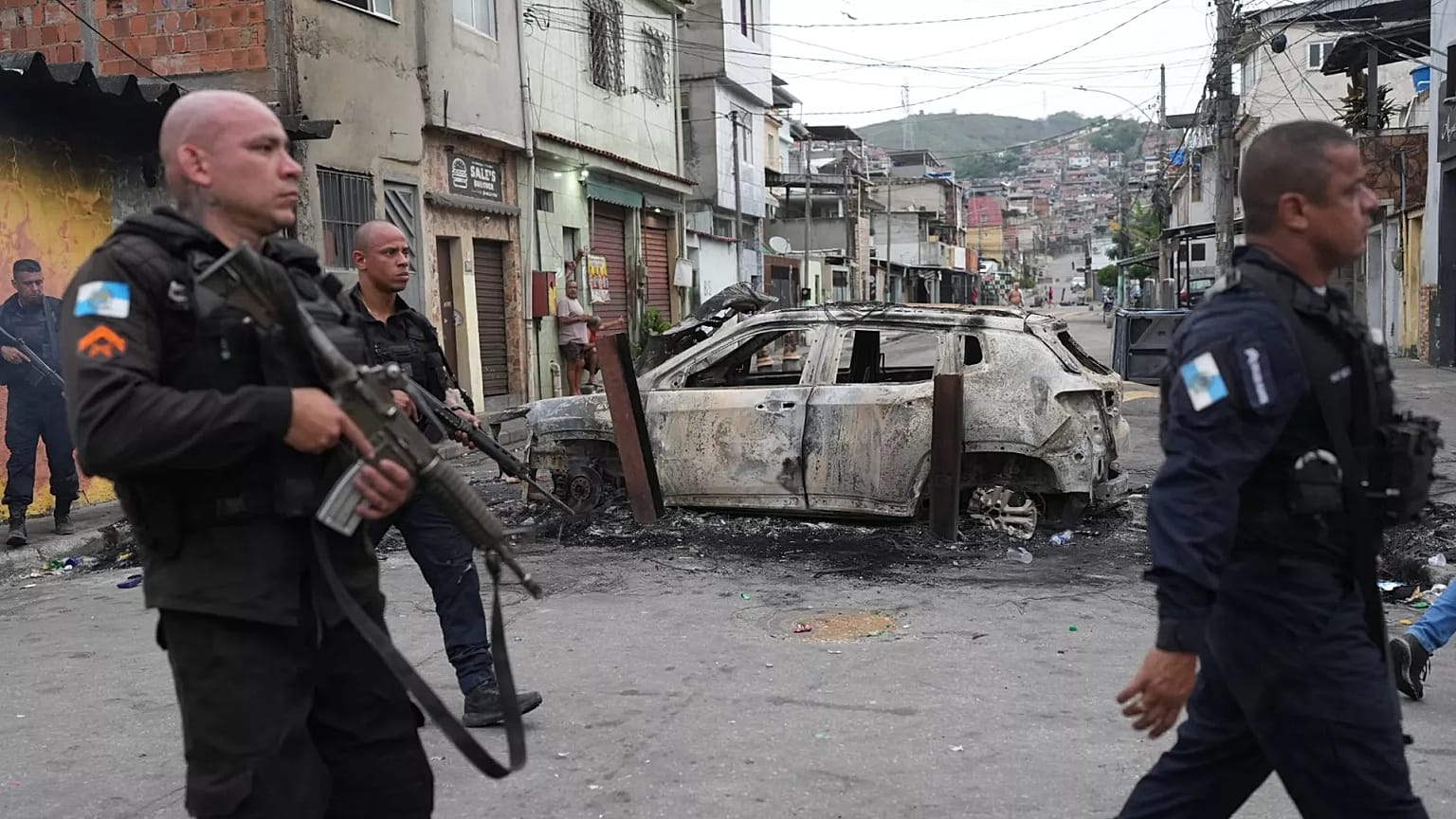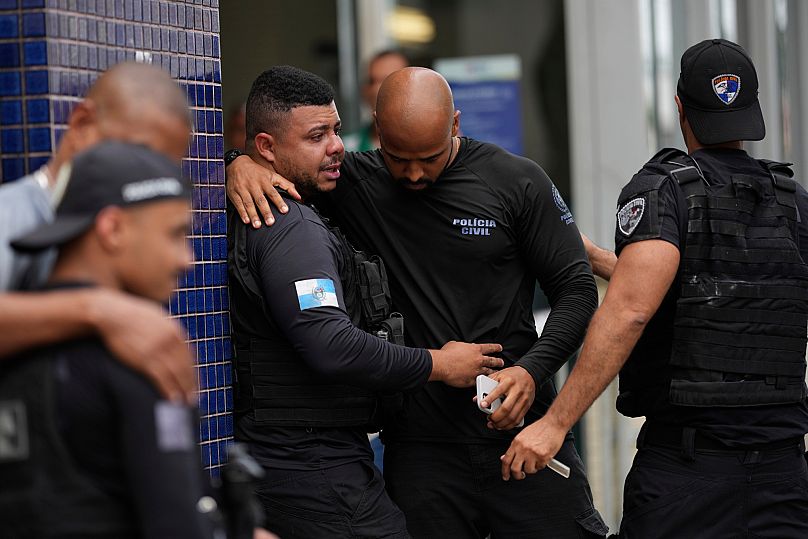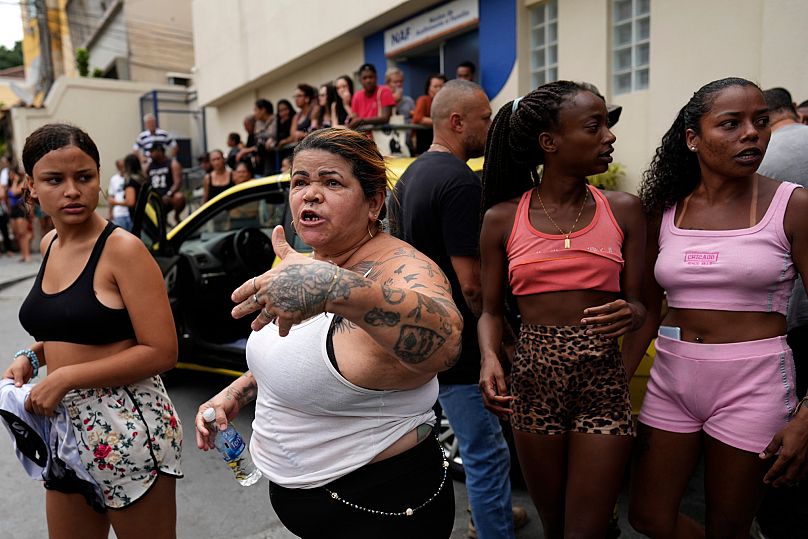The police operation was one of the most violent in Brazil’s recent history, with human rights organisations calling for investigations into the deaths.
A massive raid on a drug-trafficking gang in Rio de Janeiro on Tuesday sparked shootouts that left at least 60 suspects and four police officers dead, officials said.
The operation included officers in helicopters and armoured vehicles and targeted the notorious Red Command in the sprawling low-income favelas of Complexo de Alemao and Penha, police said.
At least 81 suspects were arrested, while 93 rifles and more than half a ton of drugs were seized, the state government said, adding that those killed “resisted police action.”
The operation was one of the most violent in Brazil’s recent history, with human rights organisations calling for investigations into the deaths.
According to Rio’s governor, Claudio Castro, 60 criminal suspects were “neutralised” during the massive raid that he called the biggest such operation in the city’s history.
Rio’s civil police said on X that four officers died in Tuesday’s operation. “The cowardly attacks by criminals against our agents will not go unpunished,” it said.
Footage on social media showed fire and smoke rising from the two favelas as gunfire rang out.
An unknown number of people were wounded in the operation on Tuesday, which police officials said followed a year of investigation into the criminal group.
What was the raid about?
Emerging from Rio’s prisons, the Red Command criminal gang has expanded its control in favelas in recent years.
The gang is accused of trafficking hard drugs, and Rio police reported that dozens of guns and more than 200 kg (441 lb) of cocaine were found during the raid.
While Tuesday’s police operation was similar to previous ones, its scale was unprecedented, said Luis Flavio Sapori, a sociologist and public safety expert at Pontifical Catholic University of Minas Gerais.
“What’s different about today’s operation is the magnitude of the victims. These are war numbers,” he said.
According to Sapori, these kinds of operations are inefficient because they do not tend to catch the masterminds but rather target underlings who can later be replaced.
Suspected gang members blocked roads in northern and southeastern Rio in response to the raid, local media reported.
At least 70 buses were commandeered to be used in the blockades, causing significant damage, the city’s bus organisation, Rio Onibus, said.
Rights groups condemn the violence
Meanwhile, the United Nations’ human rights body said it was “horrified” by the deadly police operation, called for effective investigations, and reminded authorities of their obligations under international human rights law.
César Muñoz, director of Human Rights Watch in Brazil, called Tuesday’s events “a huge tragedy” and a “disaster.”
“The public prosecutor’s office must open its own investigations and clarify the circumstances of each death,” Muñoz said in a statement.
The city’s Education Department said 46 schools across the two neighbourhoods were closed, and the nearby Federal University of Rio de Janeiro cancelled night classes and told people on campus to seek shelter.
Rio has been the scene of lethal police raids for decades. In March 2005, some 29 people were killed in Rio’s Baixada Fluminense region, while in May 2021, 28 were killed in the Jacarezinho favela.

















